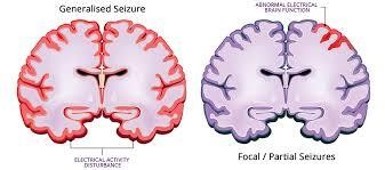A child is hospitalized after a serious motor vehicle crash and has developed increased urination. What action by the nurse takes priority?
Restrict dietary sodium intake.
Assess the daily serum sodium level.
Weigh the child daily.
Monitor the child's intake and output.
The Correct Answer is D
In this scenario, the child's increased urination after a serious motor vehicle crash may
indicate a potential issue with fluid balance. Monitoring the child's intake and output is the
priority action for the nurse. This involves accurately measuring and recording the fluids the
child consumes (intake) and the fluids the child eliminates through urine, sweat, and other
sources (output). By closely monitoring the child's intake and output, the nurse can assess the
child's fluid status and identify any abnormalities or imbalances that may require further
intervention.
Restrict dietary sodium intake in (option A) is incorrect because restricting dietary sodium
intake, may be necessary in certain situations, such as if the child has a known sodium
imbalance or hypertension. However, it is not the priority action in this scenario.
Assess the daily serum sodium level in (option B) is incorrect because assessing the daily
serum sodium level, is important to evaluate the child's electrolyte balance. However, it is not
the priority action compared to monitoring the child's intake and output.
Weigh the child daily in (option C) is incorrect because weighing the child daily, is a useful
measure to assess changes in fluid balance. However, it is not the priority action in this
scenario compared to monitoring the child's intake and output, which provides real-time
information on fluid balance.
Nursing Test Bank
Naxlex Comprehensive Predictor Exams
Related Questions
Correct Answer is B
Explanation
Thebehaviourdescribed,wherethechildappearstobestaringinto space,is characteristicof
B.Absenceseizures.
Absence seizures, also known as petit mal seizures, are a type of generalized seizure thatprimarily affects children. These seizures are brief and usually last for a few seconds. Duringan absence seizure, the child may appear to be staring blankly into space, unaware of theirsurroundings.Theymaynot respond to stimuli orengagein anypurposefulactivity.After theseizure ends, the child typically resumes their previous activity without any memory of theseizure.
Atonic seizures in (option A) is incorrect because it involves a sudden loss of muscle tone,leadingtoalimp or "drop"in theperson.
Simple partial seizures in (option C) are focal seizures that affect a specific region of thebrain,causinglocalizedsymptoms suchas twitchingor tinglinginaparticularbodypart.
Tonic-clonic seizures in (option D) also known as grand mal seizures, is incorrect because itinvolves a combination of muscle rigidity (tonic phase) and jerking movements (clonicphase).
Therefore, based on the description provided, the behaviour of staring into space ischaracteristic of B. Absence seizures. It is important for the child to be evaluated by ahealthcare professional for an accurate diagnosis and appropriate management of theirseizures.

Correct Answer is A
Explanation
The nurse's best response to the student nurse regarding why peer relationships become more important during adolescence is option A. Peer relationships become significant during adolescence because they provide adolescents with a sense of belonging. During this developmental stage, adolescents are transitioning from a primary focus on their family to a greater emphasis on peer interactions and social connections. Peer relationships offer a sense of acceptance, support, and identity as adolescents strive to establish their own identities separate from their families.
adolescents dislike their parents in (option B), is not a correct or comprehensive explanation for the increased importance of peer relationships during adolescence. While it is common for parent-child conflicts to arise during this stage, it does not imply that adolescents dislike their parents as a general rule.
suggesting that adolescents no longer need parental control in (option C), is not correct. While adolescents are seeking increased independence and autonomy, they still require parental guidance and support. Parental control and involvement continue to be essential in providing a secure and nurturing environment during adolescence.
They promote a sense of individuality in adolescents in (option D), is incorrect. Peer relationships do contribute to the development of individuality by allowing adolescents to explore their own interests, values, and social roles. However, the primary reason for the increased importance of peer relationships during adolescence is the sense of belonging and social acceptance they provide.
Whether you are a student looking to ace your exams or a practicing nurse seeking to enhance your expertise , our nursing education contents will empower you with the confidence and competence to make a difference in the lives of patients and become a respected leader in the healthcare field.
Visit Naxlex, invest in your future and unlock endless possibilities with our unparalleled nursing education contents today
Report Wrong Answer on the Current Question
Do you disagree with the answer? If yes, what is your expected answer? Explain.
Kindly be descriptive with the issue you are facing.
